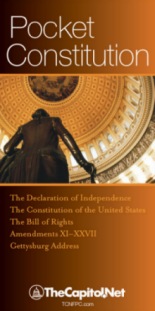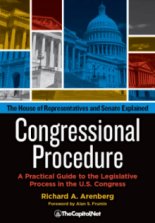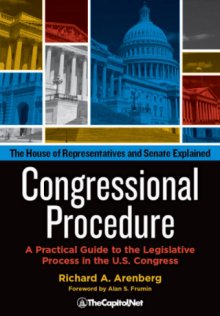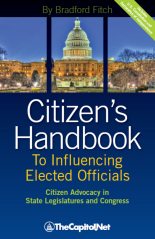Recent CRS Reports – February 2021
Considering Legislation on the House Floor: Common Practices in Brief, CRS Report R43424, February 26, 2021 (13-page PDF) “Legislative Branch: FY2021 Appropriations,” CRS Report R46469, February 26, 2021 (40-page PDF) “Availability of Legislative Measures in the House of Representatives (The “72-Hour Rule”),” CRS Report RS22015, February 25, 2021 (12-page PDF) “U.S. Capitol Attack and Law … Read more






